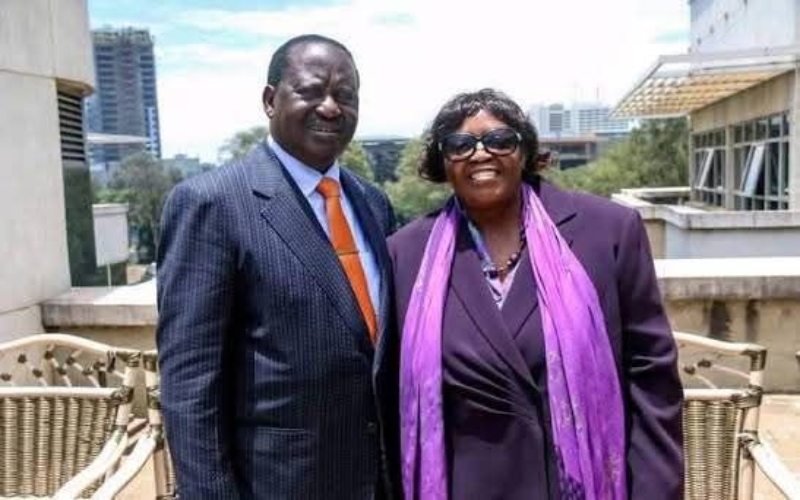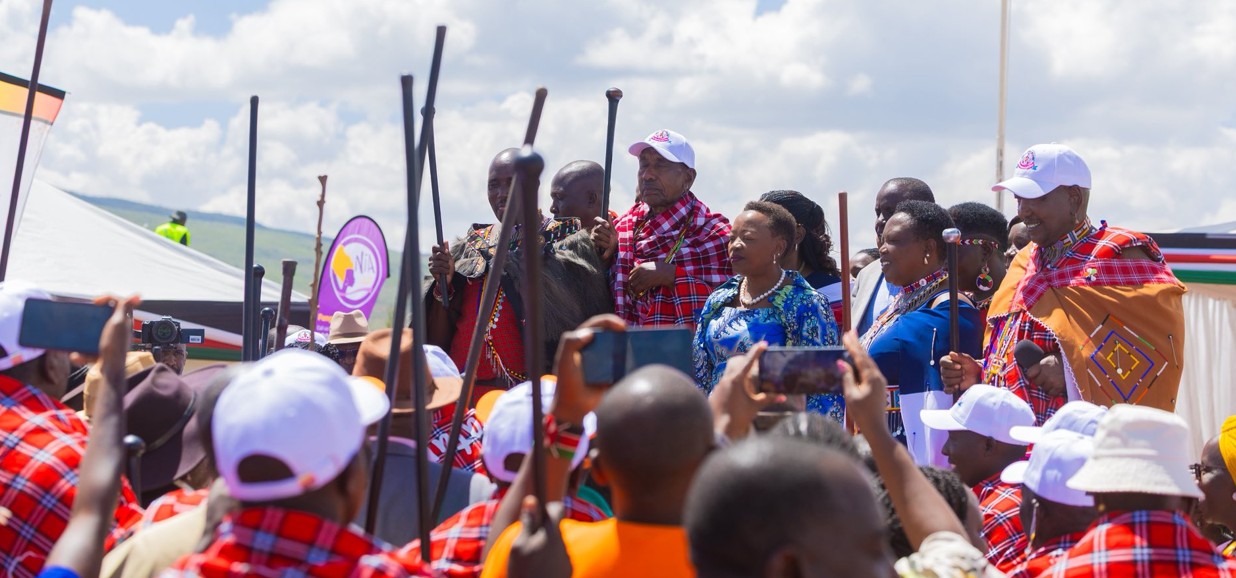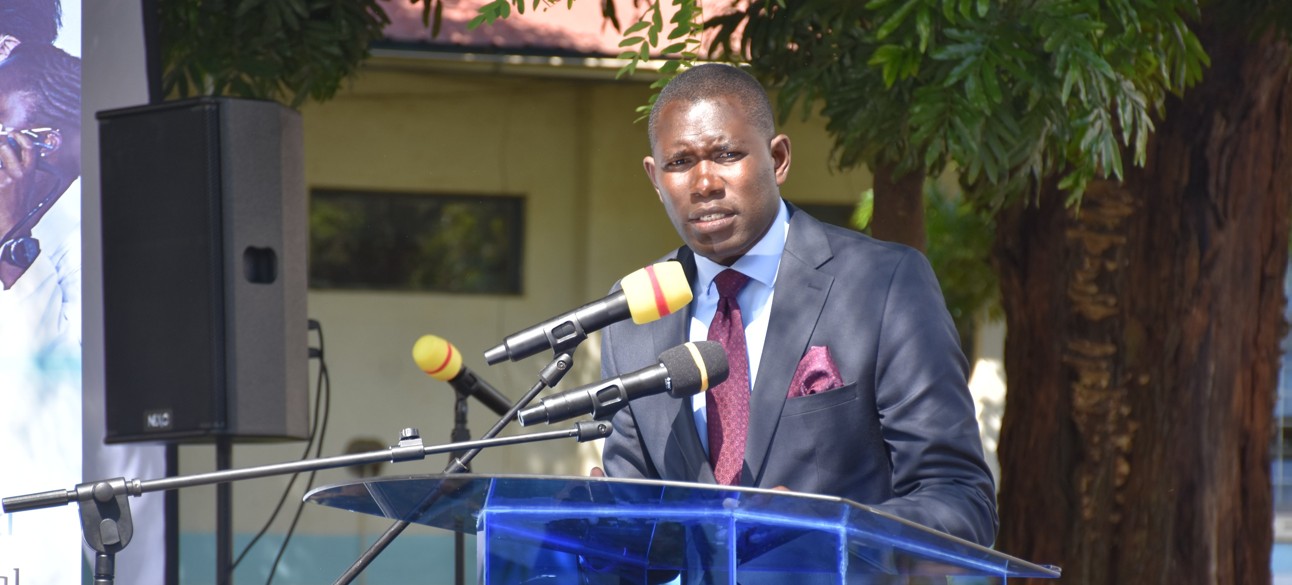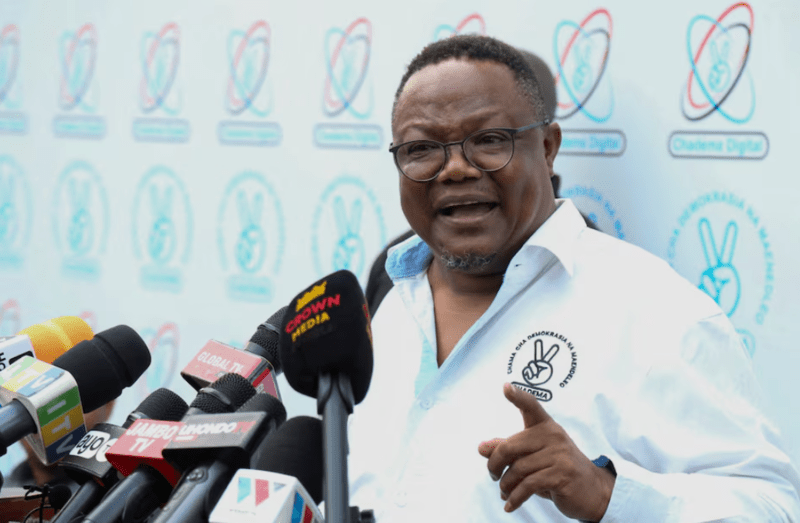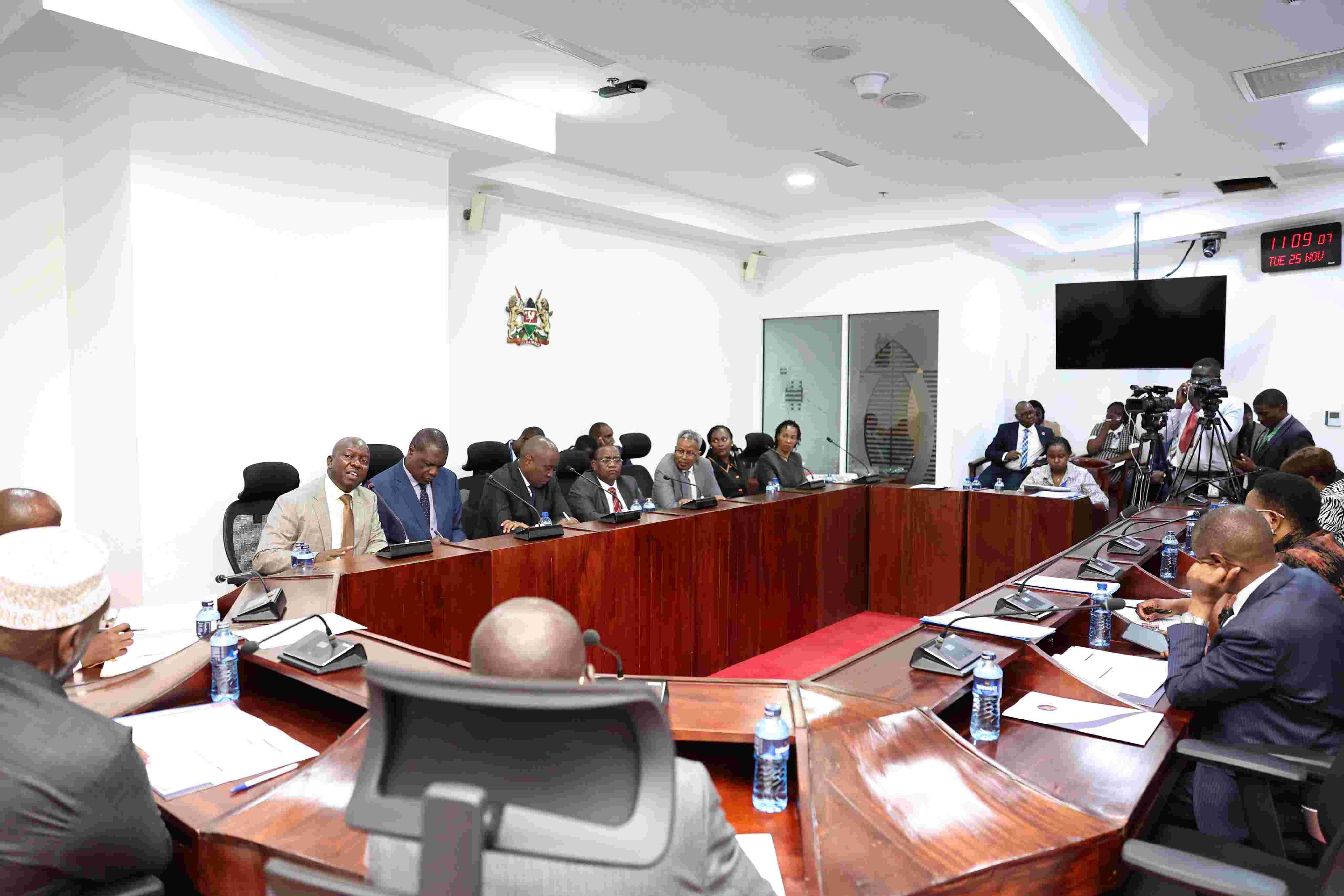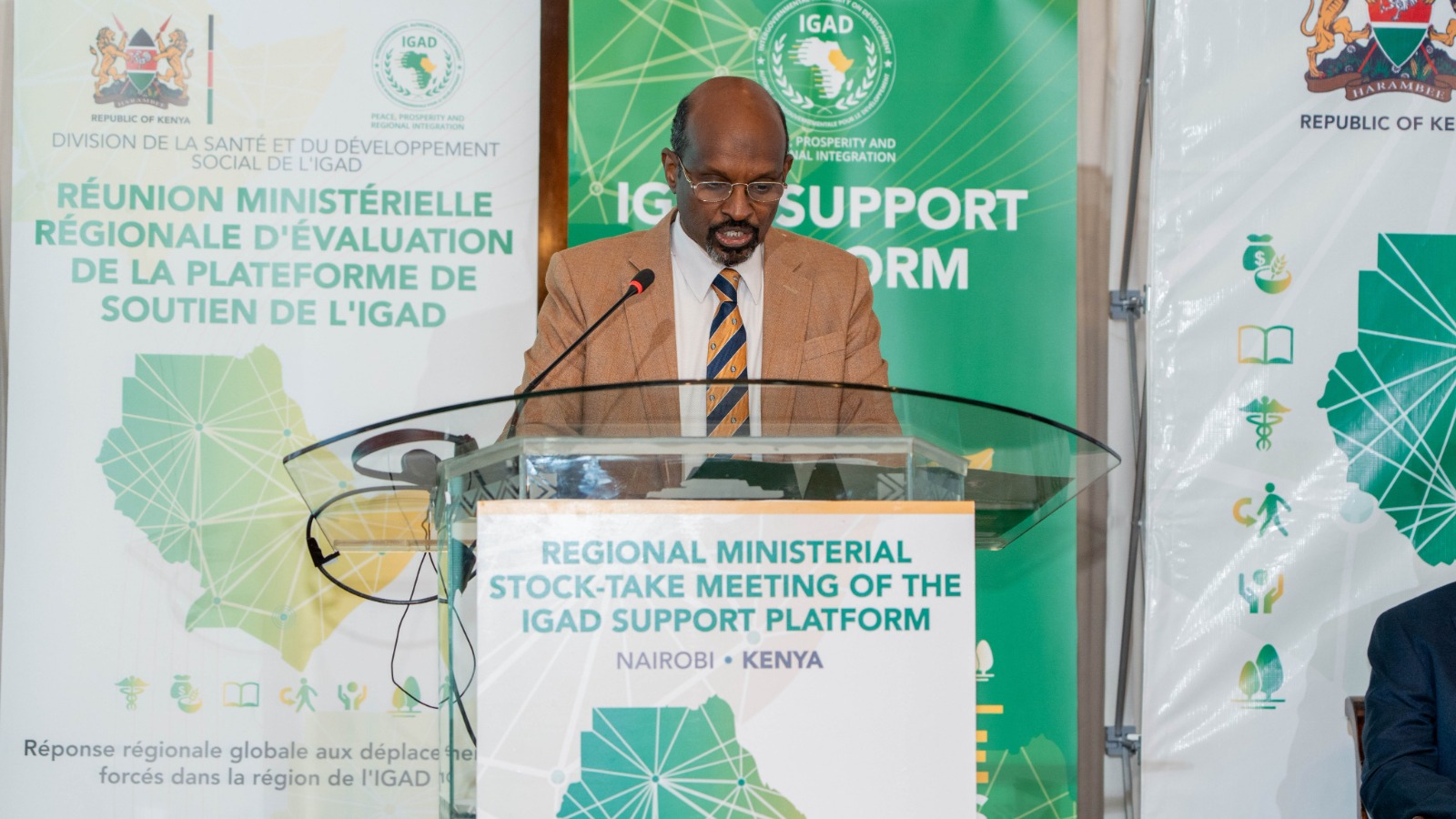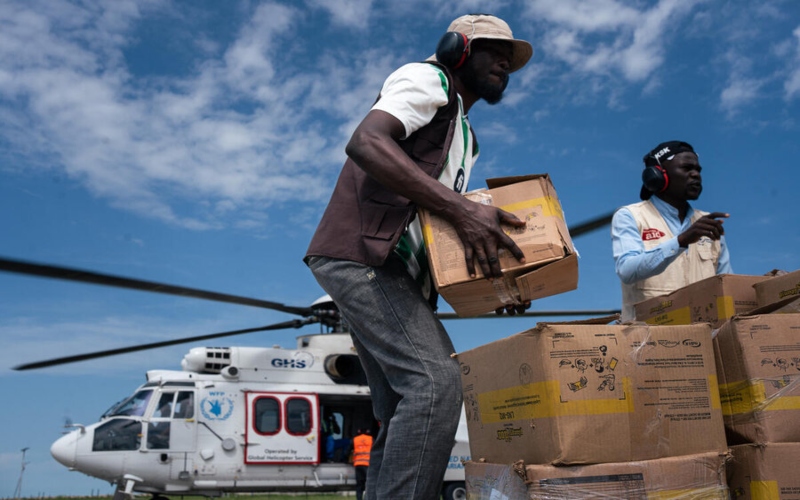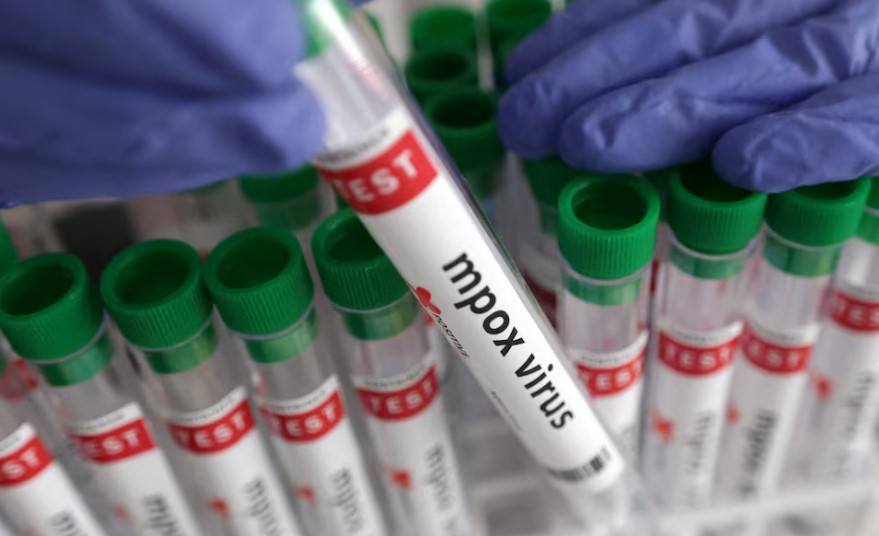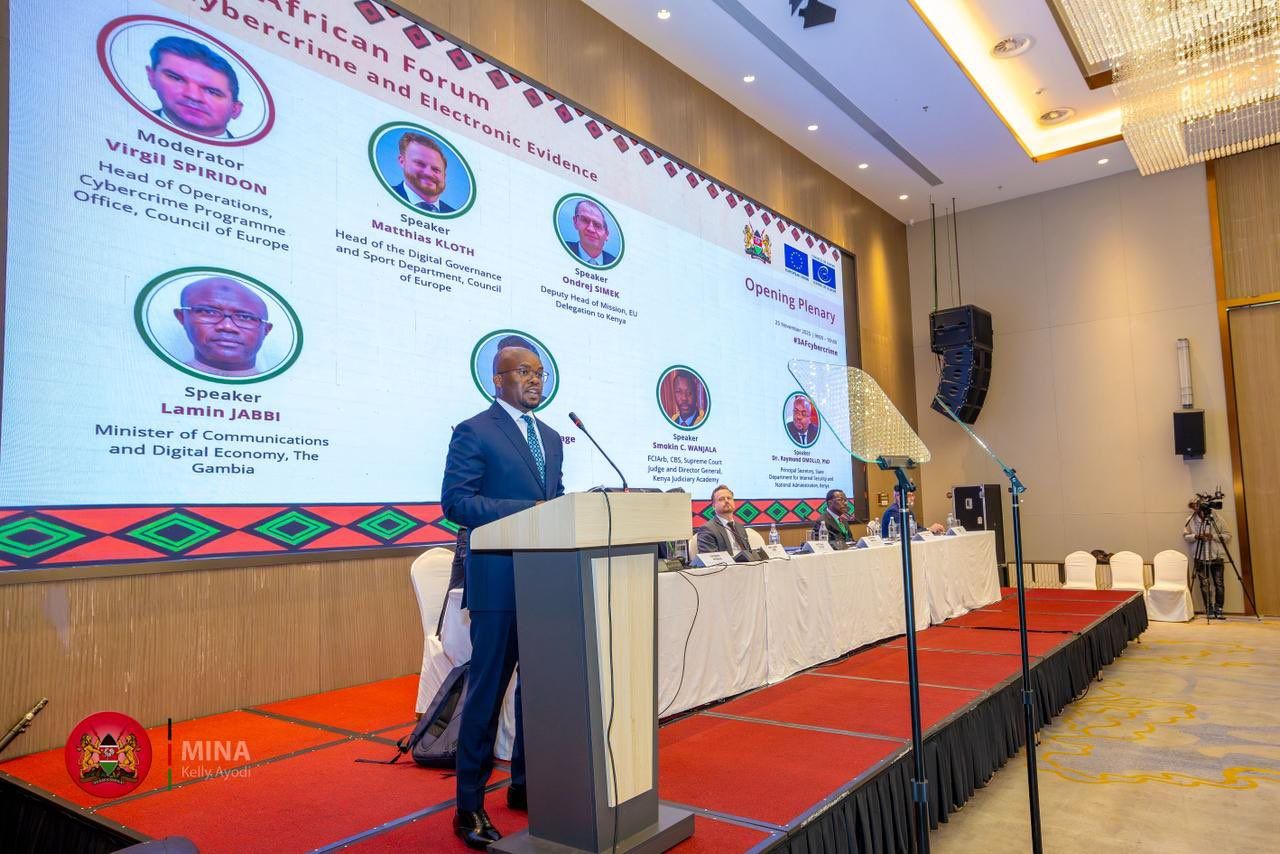How free emergency medical services are saving lives in Nairobi slums riddled with poverty, violence
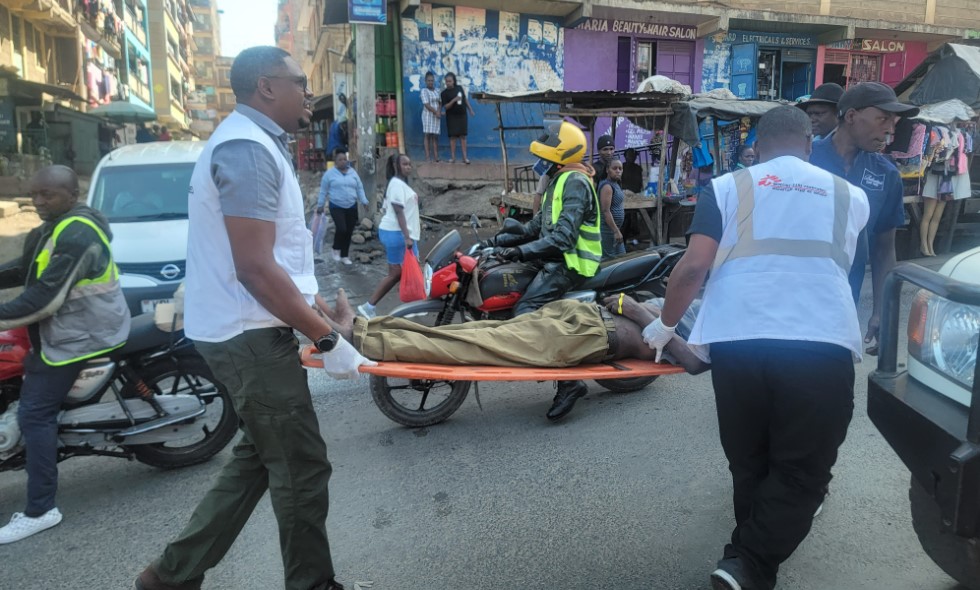
Lavender House Clinic project is not only treating illnesses but transforming lives, one patient at a time.
The streets of Nairobi's Eastlands area vibrate with a frantic energy that never quite dissipates even at night, with bustling markets, blaring matatus, and glittering high-rise buildings. But here lies a simmering tension – a stark reality of urban violence that casts a shadow over daily life.
From turf wars between rival matatu gangs to desperate acts of violence fuelled by poverty and unemployment, the city's underbelly tells a story of survival in neighbourhoods where safety feels like a luxury.
More To Read
- 1,567 injured police officers compensated, says Mwangangi as Senate pushes for transparency
- SHA announces refund process for mistaken M-Pesa premium payments
- Governors sound alarm as 934 newborns die amid funding row in health sector
- Counties decry handling of hospitals under SHA, accuse Health Ministry of overreach
- MSF demands protection of civilians after deadly attack in Upper Nile State, South Sudan
- Senate Committee moves to ban detention of patients, bodies over unpaid medical bills
For residents of Mathare, Huruma and Majengo slums, the sounds of the city often blur with the commotion of a scuffle, or the wail of sirens, a constant reminder of the fragility of peace in their urban jungle. Here, amid the chaotic hum of street vendors and the playful shouts of children in narrow pathways, a glimmer of hope has emerged.
A unique initiative by a dedicated team of medical professionals is rewriting the narrative, offering free emergency medical services to victims of constant urban violence.
The MSF (Médecins Sans Frontières) Lavender House Clinic project is not only treating illnesses but transforming lives, one patient at a time, and in communities where quality healthcare for many, was once a distant dream.
Such is the case for John Njuguna*, not his real name, who on January 9 walked to the clinic located on Juja Road next to Ola Energy petrol station in Eastleigh.
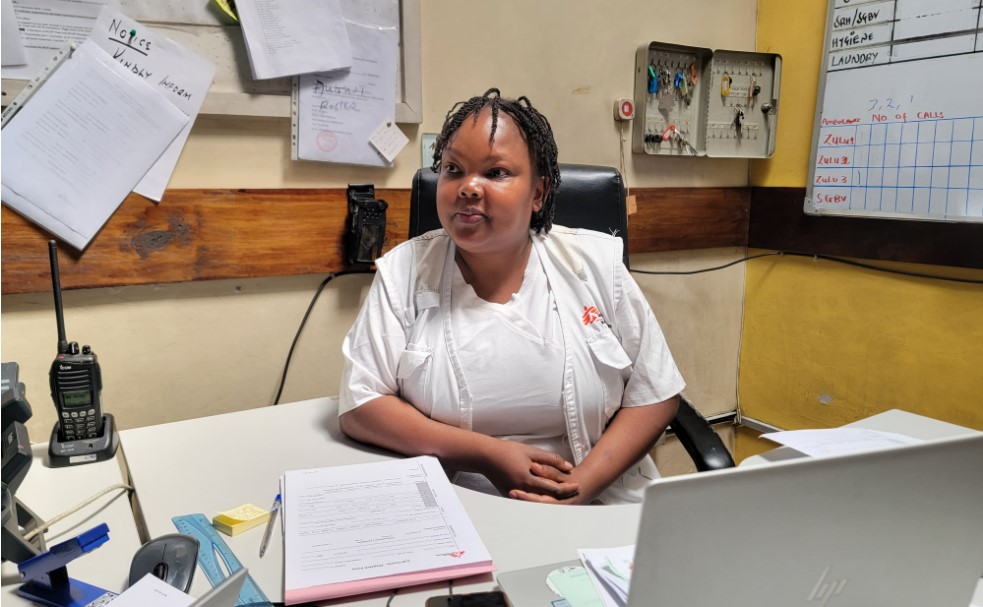 Teresiah Makau, one of the nurses at the MSF Lavender House clinic's call centre. (Photo: Ahmed Shafat)
Teresiah Makau, one of the nurses at the MSF Lavender House clinic's call centre. (Photo: Ahmed Shafat)
Injured in scuffle
Blood was dripping from a wound on his head. He said he had been hit with a blunt object by a colleague who he had a scuffle with earlier.
A nurse quickly ushered him to the trauma room where she cleaned his wound after which Dr Michele Montouri, the clinic's emergency physician, injected him with some anaesthesia before stitching his wound.
The patient, though visibly drunk, admitted that this was his second visit to the clinic for a similar treatment.
He appreciated the treatment from the team, got up and left.
Earlier, The Eastleigh Voice had followed a team of emergency medical technicians (EMTs) from the clinic as they responded to a call in the Mlango Kubwa area of Mathare where a homeless man had been seen lying unconscious.
Upon arrival at the scene, Boniface Njuguna aka Bonnie, told The Eastleigh Voice that he called the clinic to assist the man, whom he feared could have been dying.
Other Topics To Read
- Headlines
- Health
- SHIF
- SHA
- MSF
- Doctors Without Borders
- Majengo
- Mathare
- nairobi slums
- Huruma
- Nairobi Eastlands
- slum violence
- emergency medical services
- Médecins Sans Frontières
- Lavender House Clinic
- emergency medical technicians
- Mlango Kubwa
- Mama Lucy Kibaki Hospital
- How free emergency medical services are saving lives in Nairobi slums riddled with poverty
- violence
"I touched him, felt he was cold and decided to call MSF because they have helped many people here," said Bonnie.
Fortunately, the man regained consciousness within minutes of being loaded to the waiting MSF ambulance where he was treated and later escorted to the clinic for further stabilisation.
After assessing him, the medics referred him to Mama Lucy Kibaki Hospital for further management. Due to confidentiality rules, the hospital did not share the patient's details.
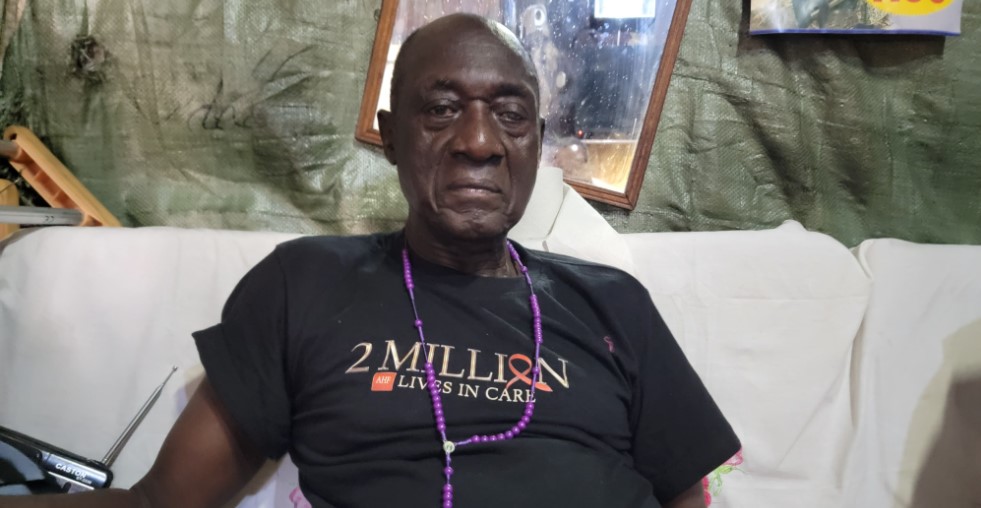 Community health promoter Christopher Ong’weny speaking to The Eastleigh Voice at his home in the Mathare 3C area. (Photo: Ahmed Shafat)
Community health promoter Christopher Ong’weny speaking to The Eastleigh Voice at his home in the Mathare 3C area. (Photo: Ahmed Shafat)
The clinic operates on a 24-hour basis, serving Eastleigh, City Carton, Mathare, Huruma, Kiambiu, Majengo and Kiamaiko slums where the majority of the population is poor, vulnerable and struggling with access to quality medical care.
Back at the clinic, we find 41-year-old Christine Mwende, a resident of Mathare who since the night of December 20, has been sleeping at the clinic after her oxygen concentrator broke down.
She says that over two decades ago, she was diagnosed with pulmonary fibrosis, a rare lung disease that causes scarring of the lungs making it difficult to breathe.
She explains that the condition was a result of recurrent pulmonary tuberculosis (TB) which she was first diagnosed with in 2003 in Wote, Makueni County. Since then, she has been in and out of hospital, as the illness kept recurring even when she moved to Nairobi's Mathare slums in 2009 where she put up with her brother before starting her own family.
It was while living in Mathare that her family introduced her to the MSF Lavender House Clinic where they would rush her whenever the illness recurred.
Unfortunately, a few years later, she started developing some strange body weakness and swelling both in the stomach and legs that saw her referred to Kenyatta National Hospital (KNH) where in 2018, she was diagnosed with pulmonary fibrosis.
After a year's admission at KNH, her family organised a fundraiser that settled her bill and the balance was used to get her an oxygen concentrator. With the machine, Mwende was able to manage her condition at home, with the help of her relatives, including her three children, two of whom are now adults and have been helping with heavy house chores as she focuses on staying alive.
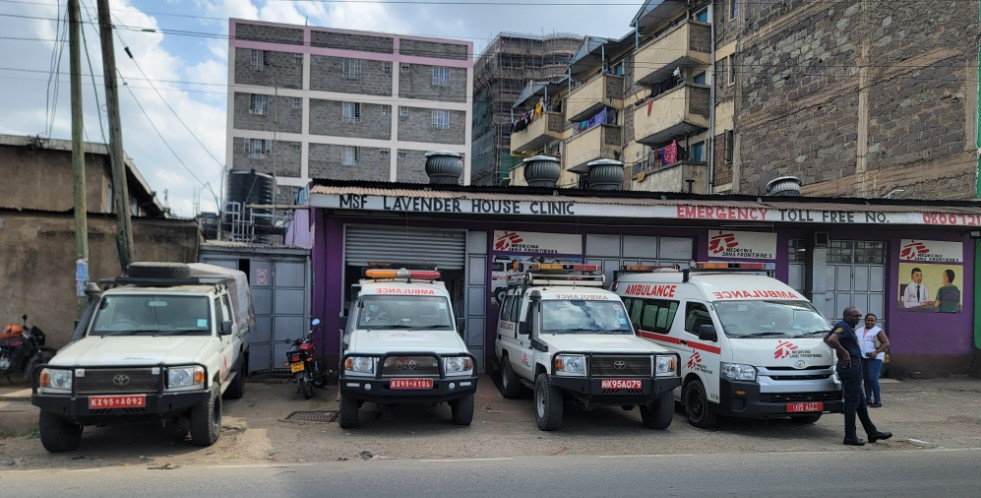 The MSF Lavender House Clinic on Juja Road in Eastleigh Airbase Ward. (Photo: Ahmed Shafat)
The MSF Lavender House Clinic on Juja Road in Eastleigh Airbase Ward. (Photo: Ahmed Shafat)
Constant blackouts
This has, however, not been without challenges as constant blackouts in Mathare caused her oxygen emergencies that would be sorted out for free at the clinic.
At the moment, her second machine has broken down, making her fully reliant on the one at the MSF clinic, hence her continued stay at the facility.
"At the moment, I am relying heavily on the machine because it's hard for me to go for two hours or sleep without it, so I spend my nights here."
"Whoever thought of bringing the clinic here, God bless you. I come here when I have hit rock bottom and without an alternative, and they always help me out. I feel like they are honestly the people sustaining my life," Mwende says when we visit her at the clinic on Juja Road.
Other than Dr Montouri, the clinic has two clinical officers, a psychologist and over 30 nurses and emergency medical technicians (EMTs) whose efforts in promoting the health of the communities are supported by three fully equipped ambulances (one dedicated to SGBV cases) that are on call 24/7.
A call centre that operates a free toll line – 0800721100 – is the link between the community and the clinic.
One of the centre's frequent callers is 67-year-old Christopher Ong'weny, a community health promoter and elder in the Mathare 3C area who has lived his life working as a health volunteer and today links residents with emergency cases to the clinic.
"Back then, moving a patient to hospital was a logistical nightmare unlike today when MSF has brought in ambulances that have helped save lives. We call the clinic after a serious assault has occurred between a fighting couple, when a rape incident has occurred, when young men fight and injure each other, in the event of accidents and when mothers are in labour. Most people come to me when these incidents occur and I call the ambulance immediately," he says.
 One of the MSF Lavender House Clinic's ambulances at work in Nairobi’s Mathare. (Photo: Ahmed Shafat)
One of the MSF Lavender House Clinic's ambulances at work in Nairobi’s Mathare. (Photo: Ahmed Shafat)
Public hospitals nightmare
Ong'eny, however, notes that the turnaround time for cases referred to public hospitals became a nightmare for many when the transfers from NHIF to SHA were still pending. He adds that while many have since registered with the new Social Health Authority, they are still sceptical about its effectiveness, seeing the long time it takes for a patient who has been referred by the clinic to a public hospital to be processed.
The clinic began operating in the 1990s as part of a project to offer HIV treatment to vulnerable communities. It then morphed to cater to sexual and gender-based violence (SGBV) cases that are common in informal settlements, besides providing sexual reproductive health services to the communities before venturing into its latest project, the emergency medical services that began in 2014.
The project was informed by an assessment done after the 2007 and 2013 elections, which revealed that the Eastlands area was witnessing a lot of unreported violence and thus constantly in need of trauma care.
"While attending to SGBV cases, we would receive patients who have had injuries from road accidents, urban violence and emerging diseases like cholera and so forth, which made us realise there was a gap in emergency healthcare and a decision was made to provide secondary care to affected persons," says Abbas Bahola, the emergency services supervisor at the clinic.
Furthermore, MSF realised that the Eastlands area is mainly served by Mama Lucy Kibaki Hospital whose location in Embakasi creates a gap in fast response to emergency care for people living in the catchment area.
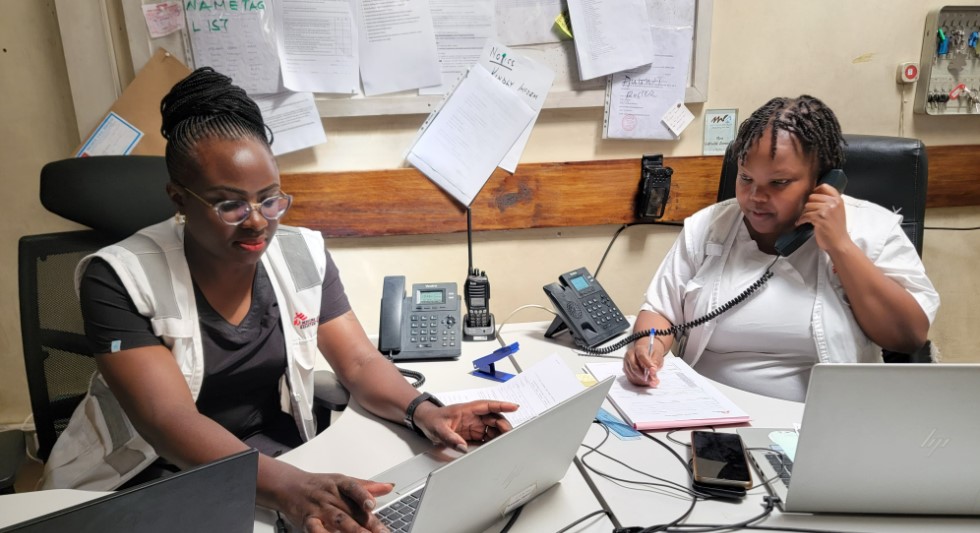 MSF Lavender House Clinic's call centre. (Photo: Ahmed Shafat)
MSF Lavender House Clinic's call centre. (Photo: Ahmed Shafat)
Pre-hospital care
The provision of secondary care thus meant the clinic would act as a vital pre-hospital care provider for the community, thus complementing the government's efforts to provide universal health coverage.
"We treat accident casualties, victims of violence, attend to incidents such as those of people falling from high-rise buildings, respond to medical emergencies such as mothers in labour, paediatric emergencies and so forth. Some cases are handled at the facility while others are referred to Mama Lucy which is our primary referral facility, though at times we also refer to Kenyatta National Hospital (KNH), Mbagathi and for maternal cases to Pumwani which is close to us," says Abbas.
In times of mass casualty incidents, the staff at the clinic are detached to offer medical aid in collaboration with government facilities.
As such, the staff members were involved in the medical rescue efforts during the 2019 dusitD2 complex attack, during the Covid-19 pandemic, when a building collapsed in Tasia in 2022, during political protests in Mathare and in last year's Embakasi fire tragedy, as well as the June 2024 Gen Z protests.
"It's not that we are restricted within our catchment areas, there are exceptions and we respond when there's a need. We also don't work in isolation; we partner with relevant organisations like the Nairobi City county and the KNH which we supported with a triage during last year's protests," he said.
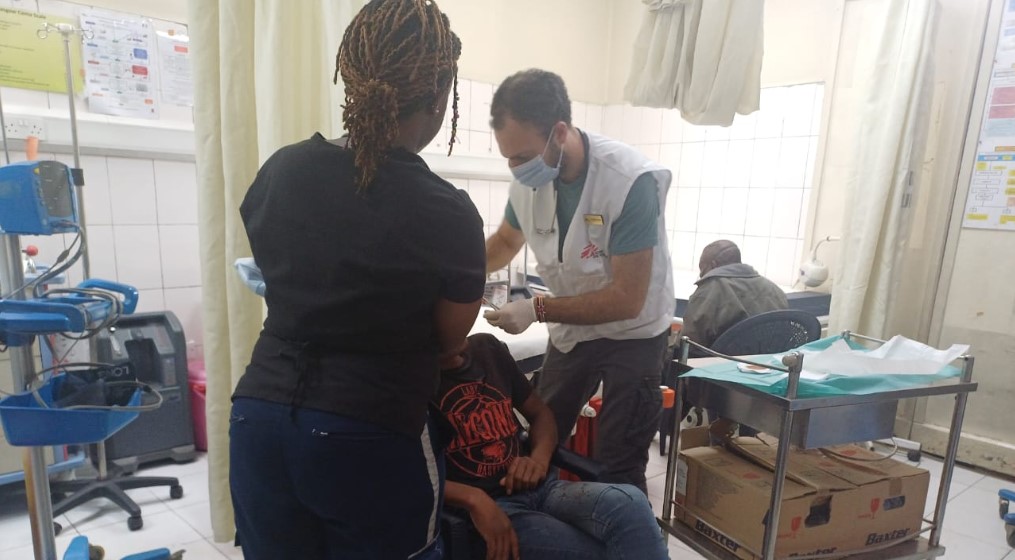 Medics attend to a patient at MSF Lavender House Clinic on Juja Road in Eastleigh. (Photo: Ahmed Shafat)
Medics attend to a patient at MSF Lavender House Clinic on Juja Road in Eastleigh. (Photo: Ahmed Shafat)
Daily attendance
Daily, the centre receives an average of 90 patients and 30 emergency calls at its call centre.
"Of these 30, we respond to around 24, the other six are usually handled on the phone by our nurses who man the call centre, as others are referred to other facilities. Others still fail to meet our threshold for response," Abbas explains.
Teresiah Makau, one of the nurses manning the call centre, explains that while the majority of the calls are received from traffic police officers when an accident occurs along its catchment area, other calls come from the community or hospitals seeking to have their patients transferred to other hospitals.
"When a call comes, we record detailed information on the patient and their location and advise the caller on what to do before an ambulance is dispatched, for example, how to position a patient in a recovery position and what not to do to a trauma patient," says Makau.
The information is then shared with the EMTs as they rush to the scene.
One of the biggest challenges the clinic faces in its work is delays in getting a patient processed before they are received at public hospitals.
"Another emerging issue is the new SHIF/SHA because primarily, all our referrals are sent to public facilities. Because of the processes like the need for registration and all that, you realise the ambulance takes, like the longest we have is three hours in having a patient taken in which then means that people requiring ambulance services may have to wait or get alternatives because the ambulance is held," says Abbas.
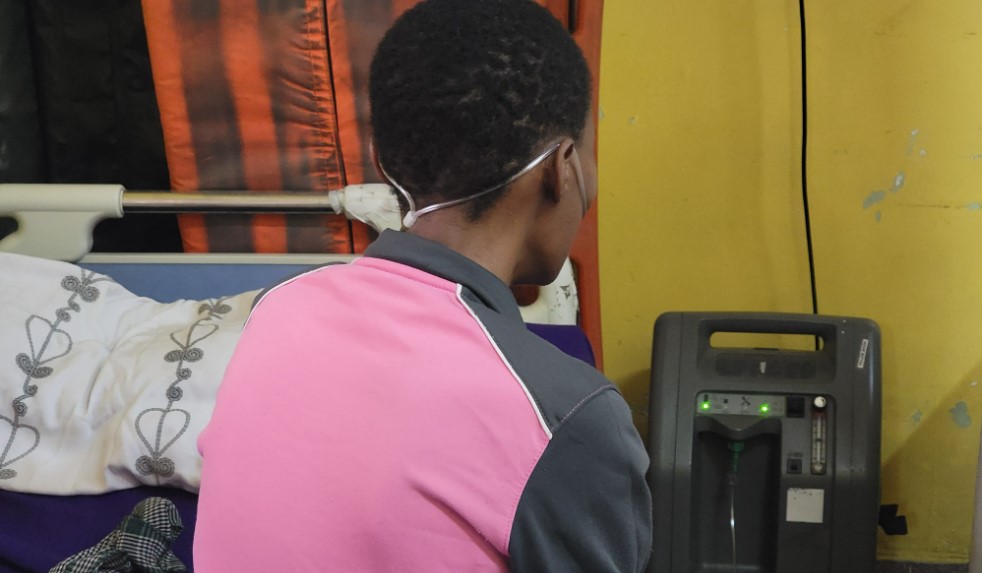 Christine Mwende using the MSF Lavender House Clinic's oxygen concentrator on January 9, 2025. (Photo: Ahmed Shafat)
Christine Mwende using the MSF Lavender House Clinic's oxygen concentrator on January 9, 2025. (Photo: Ahmed Shafat)
Humanitarian work
MSF is globally known for its independent medical humanitarian work in conflict areas, to victims of epidemics, disasters, or those facing exclusion from healthcare.
Like in such areas, MSF workers and ambulances here have also encountered hostility, for example, during protests last year when their ambulances were stoned and some staff members injured.
"Though we are accepted in the communities we work in, I feel that being a medical organisation with values of neutrality and impartiality, and responding to community needs, they really needed to give us the space to work because we were offering life-saving services," Abbas notes.
He adds that though MSF has experience in responding to medical needs during politically instigated protests in Mathare, responding to protests nowadays is not easy because they are largely unpredictable.
"However, when we get information, we plan a day prior and increase the number of staff so that they can be on standby in case of an emerging issue," says Abbas.
So, what happens when street families and irregular immigrants are unable to access help in government hospitals due to a lack of identification documents?
"Primarily, the clinic is supposed to respond to street violence but we have exceptions for street families. For them, they can come for services beyond those related to trauma at the same time. Based on our location Eastleigh and next to Kiamaiko we have a lot of immigrants who are undocumented. For these cohorts, we respond to them irrespective of their medical needs," Abbas notes.
Top Stories Today



